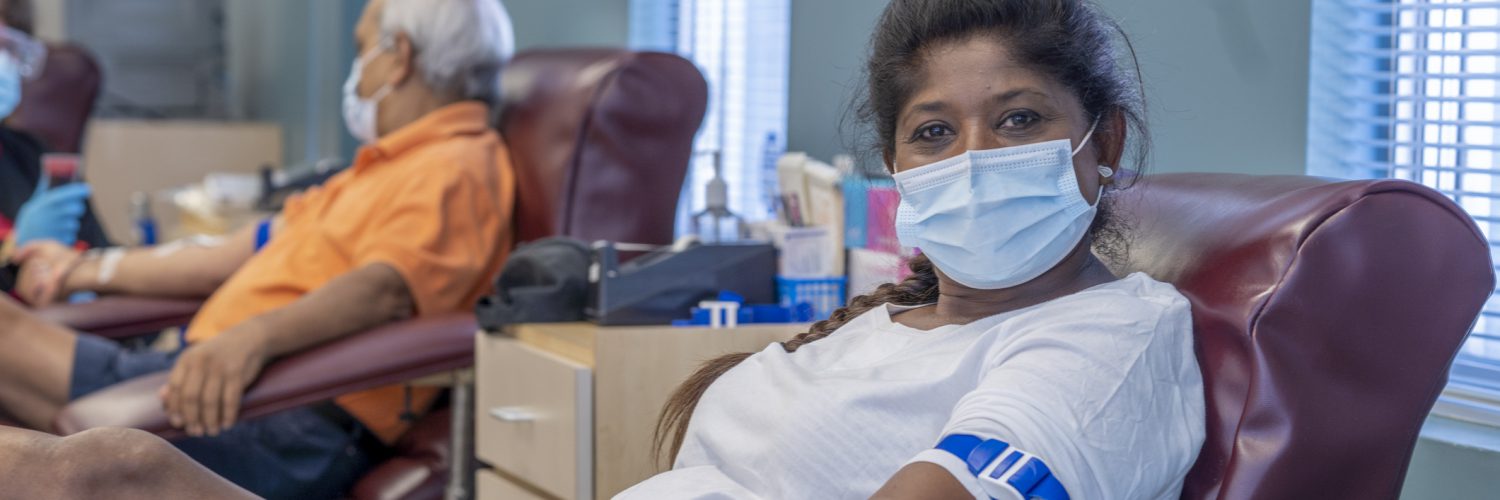The challenges of the past year have affected all of us in so many ways. Among these is a critical blood shortage. The combination of fewer workplace blood drives, natural disasters like Hurricane Ida, and an increase in medical procedures requiring blood have created an environment in which demand is far exceeding supply. If you have been considering donating blood, your contribution has never been needed more than right now. The American Red Cross and other organizations who coordinate donations consistently take precautions to ensure the health and safety of all donors, especially with the ongoing COVID-19 pandemic.
According to the American Red Cross, more than 41,000 blood donations are needed each day in the U.S., but only a fraction of eligible donors actually take the steps to donate. Many people may not donate because they haven’t thought about it or are uncomfortable with the idea, but by understanding more about the benefits of donating and how it works, you may decide to take the next step and help save lives.
Why should I give blood?
By becoming a blood donor, you can help others and potentially save the lives of your family, friends and neighbors. In the U.S., someone needs a blood transfusion every two seconds, creating an ongoing need for donations. By having a supply ready, healthcare providers can have access to the blood they need to help people when an emergency happens.
However, in addition to helping others, donating blood also offers health benefits to you! When you visit a donation center, staff or volunteers will conduct a mini-physical to be sure it is safe for you to donate, including checking your blood pressure, temperature and pulse. While this is a necessary step in the process, it also provides you with a quick snapshot of your health and can help identify any potential issues early on.
Who is eligible to give blood?
Organizations who collect blood donations will screen all donors to confirm the safety of donation for both the donor and the recipient. This often includes asking donors a series of questions to confirm they are eligible. There are a number of criteria that may determine whether or not someone is eligible, but in general, donors much be in good health, be at least 17 years old and weigh at least 110 pounds. In addition to these criteria, recent travel, current and recent medications and ongoing medical conditions may impact a donor’s eligibility. For more information to help determine if you may be eligible to donate, review the American Red Cross’ eligibility requirements here.
What happens during the donation process?
Donating blood typically involves a four-step process:
- Once you arrive at the donation facility, you will check in with the staff by providing ID and review basic information about blood donations.
- Next, you will be screened as part of a mini-physical and answer a few questions to ensure your eligibility. Any information discussed during this process is private and confidential.
- During the donation, which generally takes 8-10 minutes, you will be seated or lying down. Staff and volunteers will always be nearby in case you have any questions during the donation.
- Finally, once you’re done donating, you will have the opportunity to relax and enjoy a snack before going on with your day.
How can I find a blood donation event near me?
A large majority of blood donations are collected at mobile blood drives, often located at companies, churches, schools and other community sites. To find a drive in your area, visit the Red Cross’ online search tool. Additionally, you can also donate at any number of donation centers across the country. The American Association of Blood Banks (AABB) offers a blood bank locator online here to help you find a facility near you.
What if I can’t donate?
There are many reasons why you may not be eligible to donate at this time, but there are still ways to help! Donation centers are constantly looking for volunteers to help greet and register donors and provide refreshments, in addition to many other roles. For more information about volunteering and to find opportunities near you, check out the Red Cross’ volunteer website.
Other Helpful Resources
To learn more about blood donation, please visit any of the websites below for additional information:



